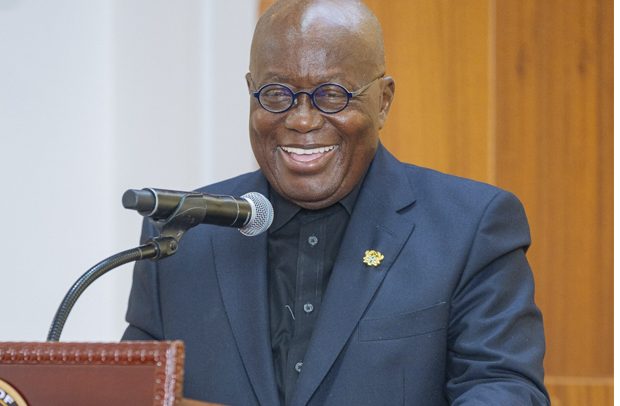President Akufo-Addo
President Akufo-Addo wants students in the country to cultivate a good reading habit.
He believes that will broaden their horizon and help in their mental development.
This was when he launched the ‘Accra World Book Capital’ in Accra yesterday.
Cities designated as United Nations Educational, Scientific and Cultural Organisation (UNESCO) World Book Capital undertake to carry out activities with the aim of encouraging a culture of reading and diffusing the values of reading in all ages and population groups within and outside the designated host nation’s borders.
Through the World Book Capital programme, UNESCO acknowledges the city’s commitment to promoting books and fostering reading during the 12-month period between one World Book and Copyright Day and the next.
Speaking at the ceremony yesterday, President Akufo-Addo therefore asked all stakeholders in the country’s education and culture space to support the “Accra World Book Capital 2023” initiative which takes office in Ghana’s capital from April 24, 2023.
He said “the Accra World Book Capital, 2023 has come to reignite the spirit of reading and its inherent transformative power to impact positively the Ghanaian society towards the goal of Ghana becoming a learning nation.”
“We are confident that the World Book Capital project will lay a strong foundation for Ghana and Africa to spare the implementation of the declarations emanating from the key continental and global education moments including activities earmarked for the 2024 Africa Union year of education,” he emphasised.
To achieve this, he stressed the need for collective thinking and collaborative working among stakeholders in the education and culture spaces.
On her part, Director General of UNESCO, Audrey Azoulay, said she has taken note of the comprehensive programme laid out for the year-long celebration of the Accra World Book Capital 2023, and stressed the belief it will leave behind a lasting legacy in the city (Accra) and in the country.
“In choosing Accra among many other cities that were candidates, we particularly appreciated the initiatives for literature in schools, through book trusts, the initiatives to bring books everywhere including health institutions and prisons, the organising of reading events like the marathon which is starting today, and the linking of literature with music, dance and theatre, aimed at building further the rich cultural diversity of the country,” she stated.
The advisory committee for the World Book Capitals project – made up of one representative of the International Authors Forum (IAF), International Federation of Library Associations and Institutions (IFLA), International Publishers Association (IPA) and one UNESCO representative – is in charge of examining and selecting applicant nations’ files.
A special effort is made to involve all regions of the world in turn, in conformity with the principle of geographical balance, and in line with a range of quality criteria. The nominating committee meets once every year.
The Director General of UNESCO is responsible for designating the cities following both internal and external consultations with the other members of the advisory committee.
The nomination does not imply any financial prize from UNESCO, but conquering the title of World Book Capital City represents an important symbolic acknowledgement, in terms of communication and promotion, and works to good effect for the winner city.
By Charles Takyi-Boadu, Presidential Correspondent


